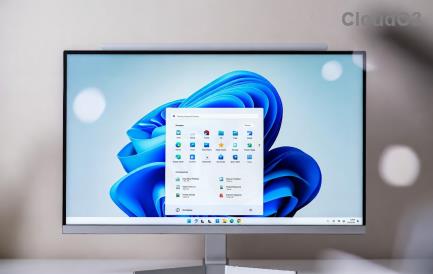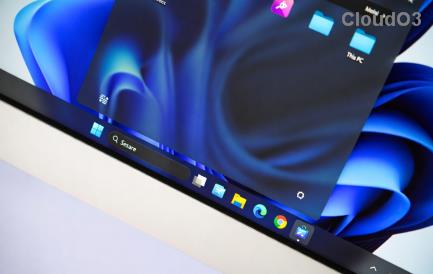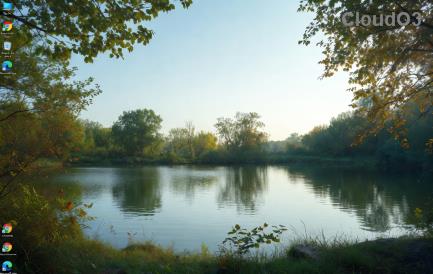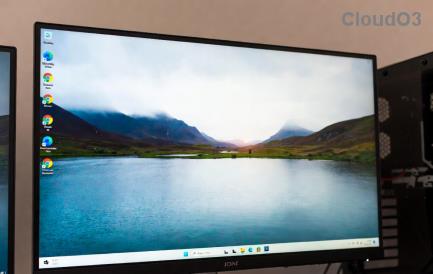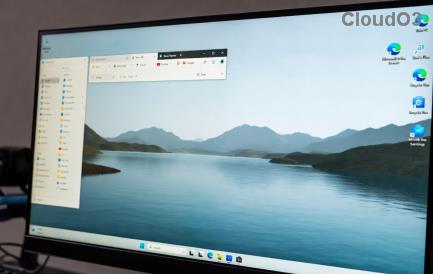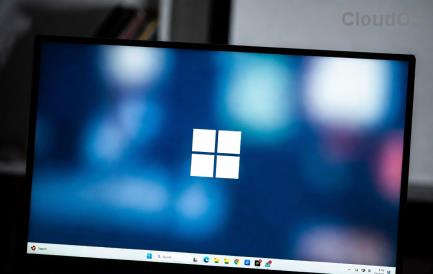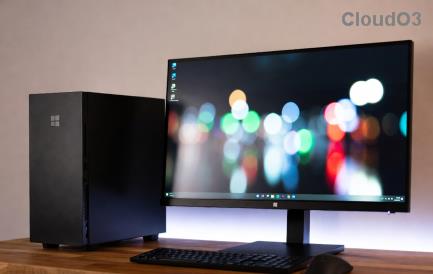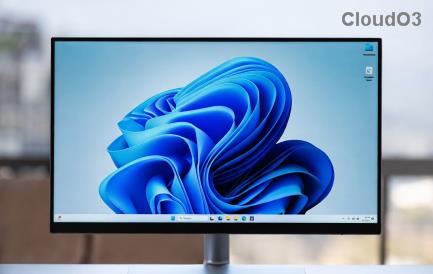
Windows Explorer è il gateway per l'interfaccia utente grafica (GUI) con cui navighiamo nel sistema operativo Windows. È la shell dell'utente che consente di esplorare il desktop, il File Manager, il menu Start e la barra delle applicazioni e una miriade di altre cose ad essa collegate. In determinate situazioni, potrebbe essere necessario riavviarlo, ad esempio quando uno o più dei suoi elementi iniziano a presentare problemi o se lo schermo si blocca.
Con Windows 11, Microsoft ha notevolmente rafforzato Windows Explorer e "centralizzato" l'intera esperienza. Ma i modi per riavviarlo sono sempre gli stessi. Qui diamo un'occhiata a come riavviare Windows Explorer e cosa succede quando lo fai.
Contenuti
Cosa succede quando riavvii Windows Explorer (e quando dovresti farlo)?
Riavviare Esplora risorse è come riavviare qualsiasi altra applicazione: chiude la shell dell'utente e la riavvia. Ciò significa che tutti i processi che dipendono da esso, come il desktop, la barra delle applicazioni, il menu Start e Esplora file verranno tutti ricaricati, risolvendo così eventuali piccoli problemi che potrebbero esserci stati. Se il tuo sistema si blocca o è in ritardo, riavviare Esplora risorse è spesso sufficiente per risolvere il problema.
È bene sapere come procedere in quanto questo è uno dei modi più veloci per risolvere un'esperienza desktop con balbuzie o una barra delle applicazioni che non risponde. Windows Explorer deve essere riavviato ogni volta che si apportano modifiche anche al registro HKEY_CURRENT_USER, che è un altro motivo per sapere come farlo.
Puoi anche semplicemente terminare Windows Explorer senza riavviarlo. Se lo fai, rimarrai con un desktop vuoto senza barra delle applicazioni o menu Start. Neanche il file explorer sarà disponibile. Ma ricominciare da capo è un gioco da ragazzi.
Correlati: Come ripristinare Windows 11
Riavvia Esplora file su Windows 11
Ecco tutti i modi in cui puoi riavviare Windows Explorer su Windows 11. Tieni presente che sebbene i riferimenti visivi mostrati in questa guida siano di Windows 11, questi metodi funzionano anche per Windows 10.
Metodo n. 01: utilizzo di Task Manager
Per prima cosa, apri il Task Manager premendo Ctrl + Shift + Esccontemporaneamente. In alternativa, puoi anche semplicemente fare clic con il pulsante destro del mouse sul menu Start e selezionare Task Manager .

Fare clic su Maggiori dettagli se il Task Manager si apre in forma ridotta.

Scorri i processi e trova Windows Explorer. Selezionalo e quindi fai clic su Riavvia nell'angolo in basso a destra.

Gli elementi visivi sullo schermo scompariranno momentaneamente e poi torneranno. Ciò significa che Windows Explorer è stato chiuso e riavviato correttamente.
Correlati: Come disinstallare gli aggiornamenti su Windows 11
Metodo n. 02: utilizzo del prompt dei comandi/terminale di Windows/PowerShell
Un altro modo per riavviare Windows Explorer è tramite un terminale di Windows come il prompt dei comandi o PowerShell. Nel nostro esempio, stiamo andando con il primo, ma i comandi sono gli stessi per entrambi.
Premi Start, digita cmd (o powershell), quindi fai clic su Esegui come amministratore .

Ora digita il seguente comando:
taskkill /f /im explorer.exe

Quindi premere Invio. Non appena lo fai, vedrai il desktop diventare nero e il menu Start e la barra delle applicazioni scomparire. Ciò significa che hai chiuso con successo Esplora risorse. Per riavviarlo, digita il seguente comando:
start explorer.exe

Quindi premere Invio. Gli elementi visivi torneranno prontamente.
Metodo #03: utilizzo di uno script batch
Puoi anche creare uno script batch per riavviare Windows Explorer in modo che la prossima volta che dovrai farlo, dovrai solo fare doppio clic su di esso. Ecco come:
Fare clic con il pulsante destro del mouse sul desktop e selezionare Nuovo > Documento di testo .

Apri questo file Blocco note, quindi digita quanto segue:
@echo off
taskkill /f /im explorer.exe
start explorer.exe
In alternativa, puoi copiare quanto sopra e incollarlo nel documento di testo.

Quindi fare clic su File .

Seleziona Salva con nome .

Assegna un nome a questo file e salva le sue estensioni come .bat . Quindi fare clic sul menu a discesa accanto a Salva come tipo .

Seleziona Tutti i file .

Quindi fare clic su Salva .

Il file batch per riavviare Windows Explorer è ora creato sul desktop. Ogni volta che è necessario riavviare Windows Explorer, è sufficiente fare doppio clic su questo file .bat.

Se i metodi di cui sopra ti sembrano troppo elaborati, puoi aggiungere un'opzione per riavviare Windows Explorer al menu di scelta rapida per un accesso più semplice. Tuttavia, per farlo, dovrai creare un file di registro specifico per l'attività. Ecco come procedere:
Apri un documento di testo (file Blocco note) come mostrato in precedenza. Quindi digitare quanto segue:
Windows Registry Editor Version 5.00
[HKEY_CLASSES_ROOT\DesktopBackground\Shell\Restart Explorer]
"icon"="explorer.exe"
"Position"="Bottom"
"SubCommands"=""
[HKEY_CLASSES_ROOT\DesktopBackground\Shell\Restart Explorer\shell\01menu]
"MUIVerb"="Restart Explorer Now"
[HKEY_CLASSES_ROOT\DesktopBackground\Shell\Restart Explorer\shell\01menu\command]
@=hex(2):63,00,6d,00,64,00,2e,00,65,00,78,00,65,00,20,00,2f,00,63,00,20,00,74,\
00,61,00,73,00,6b,00,6b,00,69,00,6c,00,6c,00,20,00,2f,00,66,00,20,00,2f,00,\
69,00,6d,00,20,00,65,00,78,00,70,00,6c,00,6f,00,72,00,65,00,72,00,2e,00,65,\
00,78,00,65,00,20,00,20,00,26,00,20,00,73,00,74,00,61,00,72,00,74,00,20,00,\
65,00,78,00,70,00,6c,00,6f,00,72,00,65,00,72,00,2e,00,65,00,78,00,65,00,00,\
00
[HKEY_CLASSES_ROOT\DesktopBackground\Shell\Restart Explorer\shell\02menu]
"MUIVerb"="Restart Explorer with Pause"
"CommandFlags"=dword:00000020
[HKEY_CLASSES_ROOT\DesktopBackground\Shell\Restart Explorer\shell\02menu\command]
@=hex(2):63,00,6d,00,64,00,2e,00,65,00,78,00,65,00,20,00,2f,00,63,00,20,00,40,\
00,65,00,63,00,68,00,6f,00,20,00,6f,00,66,00,66,00,20,00,26,00,20,00,65,00,\
63,00,68,00,6f,00,2e,00,20,00,26,00,20,00,65,00,63,00,68,00,6f,00,20,00,53,\
00,74,00,6f,00,70,00,70,00,69,00,6e,00,67,00,20,00,65,00,78,00,70,00,6c,00,\
6f,00,72,00,65,00,72,00,2e,00,65,00,78,00,65,00,20,00,70,00,72,00,6f,00,63,\
00,65,00,73,00,73,00,20,00,2e,00,20,00,2e,00,20,00,2e,00,20,00,26,00,20,00,\
65,00,63,00,68,00,6f,00,2e,00,20,00,26,00,20,00,74,00,61,00,73,00,6b,00,6b,\
00,69,00,6c,00,6c,00,20,00,2f,00,66,00,20,00,2f,00,69,00,6d,00,20,00,65,00,\
78,00,70,00,6c,00,6f,00,72,00,65,00,72,00,2e,00,65,00,78,00,65,00,20,00,26,\
00,20,00,65,00,63,00,68,00,6f,00,2e,00,20,00,26,00,20,00,65,00,63,00,68,00,\
6f,00,2e,00,20,00,26,00,20,00,65,00,63,00,68,00,6f,00,20,00,57,00,61,00,69,\
00,74,00,69,00,6e,00,67,00,20,00,74,00,6f,00,20,00,73,00,74,00,61,00,72,00,\
74,00,20,00,65,00,78,00,70,00,6c,00,6f,00,72,00,65,00,72,00,2e,00,65,00,78,\
00,65,00,20,00,70,00,72,00,6f,00,63,00,65,00,73,00,73,00,20,00,77,00,68,00,\
65,00,6e,00,20,00,79,00,6f,00,75,00,20,00,61,00,72,00,65,00,20,00,72,00,65,\
00,61,00,64,00,79,00,20,00,2e,00,20,00,2e,00,20,00,2e,00,20,00,26,00,20,00,\
70,00,61,00,75,00,73,00,65,00,20,00,26,00,26,00,20,00,73,00,74,00,61,00,72,\
00,74,00,20,00,65,00,78,00,70,00,6c,00,6f,00,72,00,65,00,72,00,2e,00,65,00,\
78,00,65,00,20,00,26,00,26,00,20,00,65,00,78,00,69,00,74,00,00,00
Per semplificare il processo, copia semplicemente quanto sopra e incollalo nel file del blocco note.

Quindi fare clic su File .

Seleziona Salva con nome .

Assegna un nome a questo file e terminalo con .reg . Quindi fare clic sul menu a discesa accanto a Salva come tipo .

Seleziona Tutti i file .

Fare clic su Salva .

Ora fai doppio clic su questo file di registro appena creato.

When prompted, click Yes.

You will now get a confirmation message that the keys and values in this file are successfully added to the registry. Click OK.

To see the new context menu option to Restart Windows Explorer, right-click on the desktop and select Show more options.

The option to Restart Explorer will be at the bottom. Hover over it to get the options to Restart Explorer Now or Restart Explorer with Pause.

If you’d like to remove this option, create a notepad file and paste the content mentioned below in it.
Windows Registry Editor Version 5.00
[-HKEY_CLASSES_ROOT\DesktopBackground\Shell\Restart Explorer]

Then click on File > Save as.

Save the file as a .reg file as we did before and save file type as ‘All files’. Then click Save.

Then double-click this newly created registry file.

When prompted, click Yes, then click OK.

The option to restart Explorer from the Context Menu will no longer be available.
Fix: Windows Explorer has stopped working
The number one fix to Windows Explorer problems is to restart Windows Explorer using any of the methods mentioned above. This gives all the visual elements of the user shell a soft reboot, allowing them to load the data again and fix any issues that they might be having.
But there are a few other potential fixes that you may want to check out as well. Here they are:
Run SFC scan
Windows Explorer may be encountering issues due to corrupt system files. Here’s how you can check for the same and fix it:
Press Start, type cmd, and click on Run as administrator.

Now type the following command:
sfc /scannow

Then press Enter. This will start the System File Checker scan. You may have to wait a while before the process is finished.

SFC Scan will find any potential problems and fix them for you.
Reboot in Safe Mode to identify the problem
Sometimes, corrupt third-party applications may be the cause of the problem. But to make sure this is the case, we have to reboot the PC in Safe Mode first. Here’s how to do so:
Press Start and click on the ‘Power’ button.

Then, while holding down the ‘Shift’ key, click on Restart.

Now, while the computer is restarting, you will be taken to the Advanced Restart options. Select Troubleshoot.

Click on Advanced options.

Click on Startup Settings.
Click Restart.

Now press the number that corresponds to Enable Safe Mode with Networking.

Check if the problem still persists in Safe Mode. If it does, here’s what you need to do.
Boot the computer back up normally, then press Start, type msconfig, and click on Run as administrator.

Under the ‘General’ tab, make sure to select Selective startup, but uncheck Load startup items.

Then switch over to the ‘Services’ tab.

Here, click on Hide all Microsoft services at the bottom to select it. Then click Disable all.

Click OK.

Restart your PC normally. If Windows Explorer is working fine, then the issue was caused most likely by a third-party app. You may need to hunt down exactly which program was interfering with the proper functioning of Windows Explorer.
We recommend uninstalling any recent apps that you may have installed around the time when this problem started to appear.
Scan for viruses
You should definitely run a full virus scan with your anti-virus program to find any viruses or malware lurking in your computer. Viruses come in various kinds and have the capacity to wreak havoc on your system, and a non-functioning Windows Explorer is one of the major symptoms.
Frequently Asked Questions (FAQs)
Windows Explorer is tied to a variety of visual elements that we as users interact with on a daily basis. It is only natural then to have questions about its functioning and what all you can do after you end or restart it. Here we answer a few commonly asked queries so you have all the information you need to make adjustments to Windows Explorer.
Is it safe to end Windows Explorer?
Yes, it is safe to end Windows Explorer. Doing so won’t lead to any problems. In fact, it may possibly fix the problems its elements may be experiencing. However, if you only end Windows Explorer without starting it up back again, you won’t have access to those very elements that have made Windows 11 stand out from its predecessors.
How often should I restart Windows Explorer?
Under normal circumstances, you won’t need to restart Windows Explorer at all. One of the main reasons why people restart Windows Explorer is when they’ve made changes to the registry the HKEY_CURRENT_USER registry key and need to see the changes implemented.
Other than that, Windows Explorer will require a soft reboot if one or more of its elements begin to malfunction. But if you’re constantly having to restart Windows Explorer, the problem may be found elsewhere. Refer to our fixes above to sort this issue.
Why does Windows Explorer keep crashing?
There are a few reasons why Windows Explorer may not be working as usual. But viruses within third-party applications downloaded from unknown or untrustworthy sources is one of the common cause for this. Windows Update too can introduce Explorer bugs with recent updates, especially if you’re on the Dev channel, although it’s not often the case.
Is any data lost when restarting Windows Explorer?
No, your data is not lost when you restart Windows Explorer. All your files and applications will return to the state in which they were when you restarted Windows Explorer. The only elements that are impacted are the UI elements that are dependent on Windows Explorer, such as the desktop, the Start Menu, File Explorer, and the taskbar.
Do copy paste keep working or get stopped?
Yes, the copy-paste function still keeps working when you end or restart Windows Explorer.
Can you reopen the same windows again after restarting Windows Explorer?
Yes, you can open the same windows again after restarting Windows Explorer. However, if you were using File Explorer to navigate through your drives and folders, you will have to open it up from the beginning and get to the folders you were accessing when you restarted Windows Explorer.
So these were the ways that you can restart Windows Explorer and when you should be doing so. We hope you now have a better understanding of the processes of Windows Explorer and the ways to manage them.
RELATED

